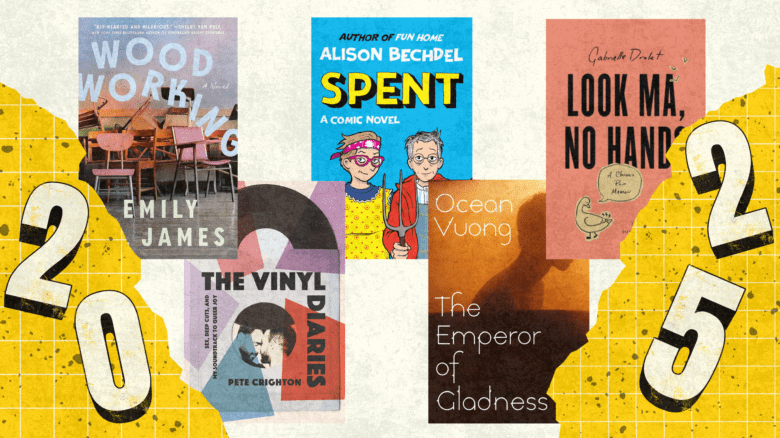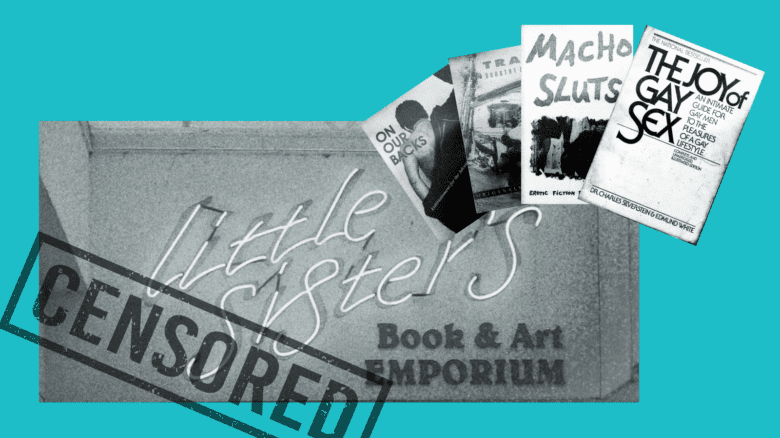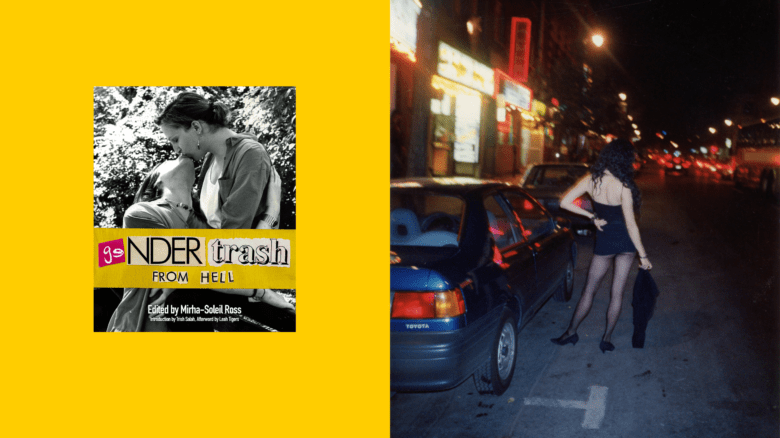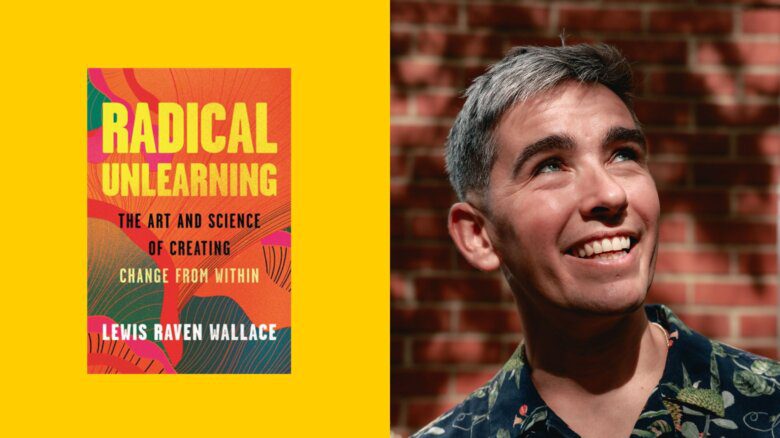Emma Grove’s graphic memoir Third Person, which was released in late May, painstakingly chronicles her struggle to access care not just as a trans woman, but as multiple people. Grove lives with Dissociative Identity Disorder (DID), a condition caused by significant childhood trauma that manifests in adulthood as severe, involuntary dissociation. These dissociative episodes are characterized by mood swings, psychological withdrawal, and even memory blackouts that can constitute entirely distinct personalities, which are sometimes called alters. DID is understood better by those who experience it than those who study it—I know this because I have it too.
In Third Person, Grove’s first book, the author brilliantly illustrates the process of “switching” between herself and her alters: the hard-working assigned male identity Ed, and the protective, hyper-feminine Katina. It is also a sobering, at times enraging look at what truly awful therapy looks like: the memoir chronicles her sessions with her therapist Toby, who at times accuses her of faking both her disorder and her transness.
Third Person portrays the devastation, confusion and resilience of living with DID better than any media portrayal or medical professional I’ve ever encountered. I spoke with Emma about her book, and how to fight for ourselves against a medical establishment that at times denies that we exist.
Reading this book was significant for me, because I also have DID. I had to postpone our interview by a few days because reading it was honestly hitting me so hard emotionally. So I’ve been really looking forward to talking to you.
Oh wow, thank you. I haven’t talked with another DID person, how accurate do you think it was?
Well mine’s not as pronounced as yours, and that’s the first thing I noticed. In the book, your first therapist remarks that you have such a typical presentation of DID. Mine’s a lot more fluid—I rarely experience blackouts. I could explain it forever but I’m still trying to figure it out in therapy.
When I first started switching in therapy sessions, I could usually hang in there for the first sentence and then I would just go away basically. Katina would say “now go in the back” and I would just go to sleep.
Yeah that sounds familiar. I can still watch myself doing things and remember it, but I have very little control in the moment. I’ll snap out like, “Why did I do that?”
Yeah sometimes the parts would coexist, sometimes I could listen in on what Katina was saying, but I couldn’t control what she was saying or what she was doing. But then often I would just go away, and have no memory at all of what I said as Ed or Katina.
That sounds intense. In the book you use a visual metaphor: you often draw your alters appearing over your shoulder before they switch in. I found that very relatable.
Once, I was actually in the middle of driving and I just woke up as Emma. I had no idea where I was and I just pulled over to the side of the road. I turned around and drove straight until I saw Toby’s office and remembered we had a session. But basically Katina had decided to drive, and was driving us away from the office.
I use another visual metaphor in the book where I show the “core self” behind a castle wall— the bad memories and the trauma on the outside, and the alters in front as guards. That’s the alters basically protecting your core self from trauma and bad memories and the resulting emotions. I didn’t realize until I was writing the book how protective Katina was. And what I find really interesting, looking back on it now, is how correct she was about so many things. She warned me Toby would hurt me and I didn’t believe her. I’m much more trusting than my alter was. But she was right.
Putting this together into a narrative must have been so daunting. You touch on it a bit in the book, but what was the process of uncovering and re-assembling these memories?
The actual process of writing the book was huge. It took us like three years basically—us meaning me and my alters, because I feel we wrote the book together. The book is actually dedicated to my alters, Ed and Katina, and what they did for me. I would not have survived without them at all. I feel like I didn’t deserve what they did for me, like just the amount of self sacrifice that they both did. There’s honestly a lot of guilt with having DID. It’s like these two parts did so much for me, and I’m not worthy of it.
The things you read in the book, I wrote them down as I remembered them. I would remember one very specific detail, like a thing that was said, and then everything else would come back in a flood. I was so disappointed that I didn’t get to include the writing process in the book because the act of remembering itself was so significant.
You’re very adamant in the intro that the dialogue is presented exactly as it happened, or at least as you remember it, even if it means people repeating themselves or misunderstanding each other. What was behind that choice?
Originally, I’d thought about doing a book on my transition. And it turned out to be just a little 70-page book called Midnight to Midnight, where I’d take 24 hours of my life and show play-by-play, word for word what happened, obviously editing out the really boring parts. There’s something really appealing about the honesty of that, just showing everything and letting the audience draw their own conclusion. So I decided to continue that because I really liked the honesty in it. I thought it would involve the audience more, so they can decide who’s being nice and who’s not so nice.
When Toby was accusing you of faking your personalities, and using that to deny your trans identity, it really showed how circular and frustrating it is to essentially prove your experience. Was that something you were trying to capture deliberately?
Well writing the dialogue out word for word was just my way of remembering what happened. And then it just became really interesting to me, the back and forth with Toby. Really I just found it fascinating. There were times when my loyalty toward Toby shifted. First I liked him, then I hated him. Now I’m at the point where I see things a little more well-rounded. I can see that he made mistakes and I made mistakes; we’re not perfect. I hope he doesn’t come off as a villain in the book.
I found myself really not liking him. I wouldn’t say a villain, but he’s definitely the antagonist. Mainly because he’s your obstacle: he gatekeeps your transness and implies that you’re faking your disorder. He made your sessions about himself a lot, saying you were lying to him and acting like a victim. It was very frustrating to watch.
Three or four years after seeing Toby I did do some reading up on client/therapist relationships, and I found out that there was a lot of no-nos that he crossed.
Like I showed in the book, Toby once yelled that he could see why my grandfather used to beat me. And that was really just the tip of the iceberg for the abuse I experienced from my grandpa. When I remembered Toby saying that, I was traumatized for days. I still can’t believe he said it. I really believe there was this thing of control, like he was in control and I wasn’t. You can even see the one session, where I said “I think I might have multiple personalities,” and he even said that he didn’t think I could have figured that out on my own, so I must be faking. And he was also using the approval for hormone replacement therapy as a way to control.
He could see me as a woman, but at the same time, he didn’t want to really acknowledge me as a woman, because if he did that would have meant that he would have had to approve me for the hormone replacement therapy, which he didn’t want to do, because he just thought I was sick.
I got the impression Toby was almost learning about these things through you, or practicing on you because he was so underqualified even by his own admission. Do you ever look back and feel like invoicing him?
[Laughs] Yeah, I do feel like so many sessions were wasted just because he wasn’t listening. In his defense, he did admit, in the beginning, he wasn’t qualified. And he did try to get me to leave and go see somebody else.
I felt that by writing this book and getting my story out there, I took the power back from two people that basically had me in a position where I was powerless, and took the power away from me. That was my grandfather, and the therapist that I call Toby. After writing this book, months afterwards, in my mind, I had an imaginary conversation with them where I told them, “you don’t have power over me anymore.”
This isn’t giving away the ending of the book, but obviously now you’re more integrated as just Emma. What was that process like? I love my alter. And part of the reason that I was having trouble with your book is that I really don’t like the idea of saying goodbye to her.
I miss Katina. One of the things I did after writing this book was I cried for months, just missing Katina because having her in my life was like having a best friend and a sister in my head all the time looking out for me.
To lose that part of me, as you see in the book, it was devastating. It was literally like my best friend and sister and best protector in the whole entire world died. I was like, “What do I do now?” It’s not the same for everyone but personally I think that alters are wonderful.
What would you say to anybody who reads this interview, or your book, and relates to it in a way that might feel kind of scary?
The one thing I would tell anybody really is do not let anyone else tell you who you are. You’re the only one that can tell you who you are. And do not give anyone else that power. What I’ve noticed in my life is people have constantly tried to take that away from me. And that’s a mistake I’ve made, thinking, “Oh just let them tell me who they think I am,” and I was a chameleon being whatever they wanted me to be. I’m finally old and wise enough to realize that’s pointless. The only thing you can be is yourself. So that’s the advice I would give: don’t let anybody tell you who you are.
Even if who you are is more than one person.
Exactly.
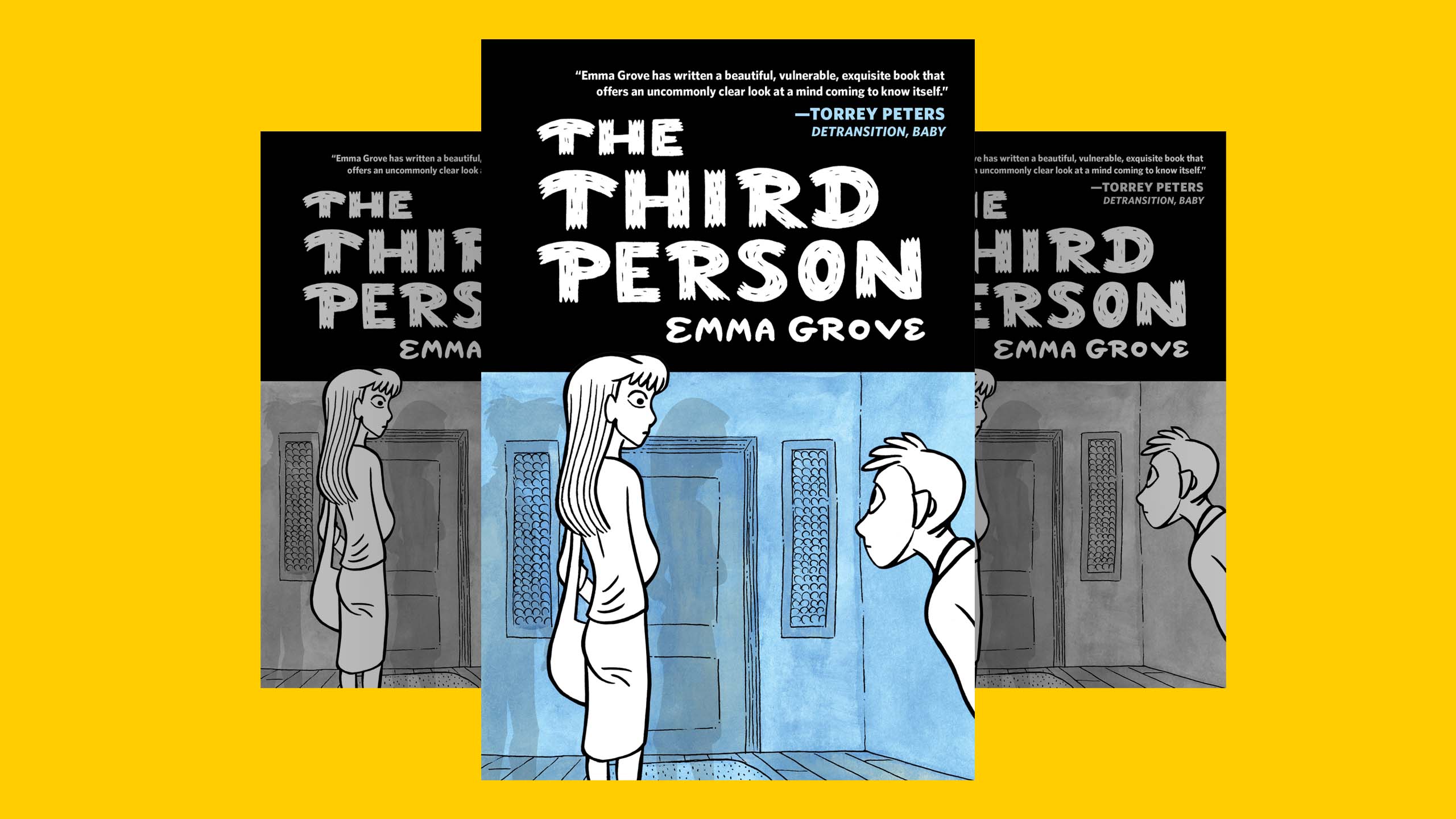

 Why you can trust Xtra
Why you can trust Xtra